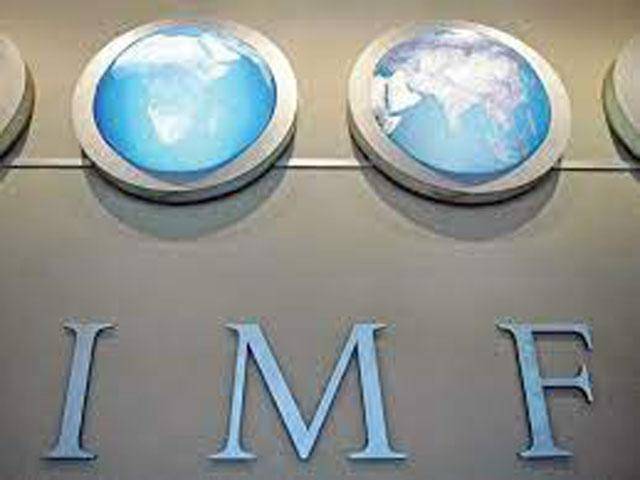ISLAMABAD - The ongoing political uncertainty in the country might adversely affect domestic economic activities, which is already under pressure due to widening current account deficit, currency depreciating, and talks between Pakistan and International Monetary Fund (IMF) for next review are halted.
The country is currently facing constitutional crisis after President Arif Alvi has dissolved the National Assembly. Prime Minister (PM) Imran Khan had recommended president to dissolve the lower house of the parliament soon after ruling given by National Assembly Deputy Speaker Qasim Suri who termed the no-confidence motion against the Prime Minister “unconstitutional”, saying that it was backed by “foreign powers”. Officials in ministry of finance and economic experts believed that current political uncertainty in the country might adversely affect domestic economic activities.
The talks between Pakistan and IMF are already halted due to the ongoing political situation. The government had not convinced IMF on the two packages announced by PM Imran Khan, one for reducing oil and electricity prices and second to announce amnesty scheme for the industrialists. Officials informed that IMF was also waiting for the result of the no-confidence motion against the PM. However, the existing situation might further create problems in the talks with the IMF.
Meanwhile, they said that current political situation would also affect the budget preparations for the next fiscal year. “Not from today, we are uncertain from last couple of week that who will announce the next budget, either the PTI or the joint opposition,” said an official of the ministry of finance wishing not to be named. Now, the government has announced to dissolve the National Assembly, which clarify that interim government would have to present the budget for next fiscal year, he added. He hoped that things might improve after the decision of Supreme Court on ruling of Speaker Qasim Suri who termed the no-confidence motion against the PM “unconstitutional”.
The ministry of finance has already warned that the intensity of internal and external risks has still not been exactly realised which may adversely affect domestic economic activities. Further, inflation and the current account deficit are still under pressure. It added that domestic political conditions are building domestic risks. A further escalation of these risks could hamper the positive outlook for Pakistan’s economy and may also aggravate the macroeconomic imbalances.
The external sector of the economy is already under immense pressure. Pakistani rupee in last week had depreciated to a historic low of Rs184 against the US dollar in the interbank market. Market sources feared that currency might remain under pressure until political stability in the country. On the other hand, foreign exchange reserves are declining due to massive repayment against previous loans and financing of current account deficit. The foreign exchange reserves of the SBP have fallen by $8.026 billion to $12.047 billion from $20.073 billion in August 2021. The current account deficit had widened to $12.099 billion in first eight months (July to February) of the current fiscal year against a surplus of $994 million in the same period of last fiscal year.
The country is currently facing constitutional crisis after President Arif Alvi has dissolved the National Assembly. Prime Minister (PM) Imran Khan had recommended president to dissolve the lower house of the parliament soon after ruling given by National Assembly Deputy Speaker Qasim Suri who termed the no-confidence motion against the Prime Minister “unconstitutional”, saying that it was backed by “foreign powers”. Officials in ministry of finance and economic experts believed that current political uncertainty in the country might adversely affect domestic economic activities.
The talks between Pakistan and IMF are already halted due to the ongoing political situation. The government had not convinced IMF on the two packages announced by PM Imran Khan, one for reducing oil and electricity prices and second to announce amnesty scheme for the industrialists. Officials informed that IMF was also waiting for the result of the no-confidence motion against the PM. However, the existing situation might further create problems in the talks with the IMF.
Meanwhile, they said that current political situation would also affect the budget preparations for the next fiscal year. “Not from today, we are uncertain from last couple of week that who will announce the next budget, either the PTI or the joint opposition,” said an official of the ministry of finance wishing not to be named. Now, the government has announced to dissolve the National Assembly, which clarify that interim government would have to present the budget for next fiscal year, he added. He hoped that things might improve after the decision of Supreme Court on ruling of Speaker Qasim Suri who termed the no-confidence motion against the PM “unconstitutional”.
The ministry of finance has already warned that the intensity of internal and external risks has still not been exactly realised which may adversely affect domestic economic activities. Further, inflation and the current account deficit are still under pressure. It added that domestic political conditions are building domestic risks. A further escalation of these risks could hamper the positive outlook for Pakistan’s economy and may also aggravate the macroeconomic imbalances.
The external sector of the economy is already under immense pressure. Pakistani rupee in last week had depreciated to a historic low of Rs184 against the US dollar in the interbank market. Market sources feared that currency might remain under pressure until political stability in the country. On the other hand, foreign exchange reserves are declining due to massive repayment against previous loans and financing of current account deficit. The foreign exchange reserves of the SBP have fallen by $8.026 billion to $12.047 billion from $20.073 billion in August 2021. The current account deficit had widened to $12.099 billion in first eight months (July to February) of the current fiscal year against a surplus of $994 million in the same period of last fiscal year.






